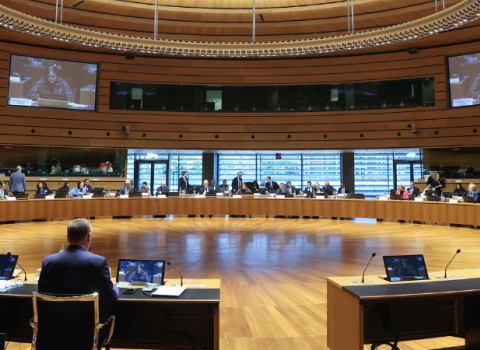CEO of Croatian AI start-up calls for a “level playing field” in European scale-up funding

Hajdi Cenan, co-founder and chief executive of Airt. Photo credits: Hajdi Cenan / LinkedIn
Better access to scale-up funding and a true single European market are needed to consolidate rapidly growing deep tech start-ups in smaller and newer member states, delegates to the European Commission’s Research and Innovation Days conference heard on September 16.
Despite a substantial increase in venture investment across the region, deep tech start-ups in central and eastern European countries that joined the EU after 2004 are struggling to access the funding they need in order to scale up their technologies and services on the European market.
According to the Venture in Eastern Europe report, which analysed 19 countries both within and outside the EU, venture deals in the region totalled €3.89 billion in 2024, double than the previous year. But this is not enough to ensure promising deep-tech companies can scale-up in Europe.
“There is no level playing field when it comes to access to finance” in Europe, said Hajdi Cenan, co-founder and chief executive of Airt, a Croatian AI start-up that has recently been acquired by a company in the US .
Her company moved to the US precisely because it struggled with regulatory hurdles in Europe and investment wase more readily available across the Atlantic. “In Croatia, there aren’t that many choices for people to really get the capital, and even the capital that is offered to them is not on such favourable conditions,” Cenan said at the conference.
She added that investors in smaller European countries often come up with unacceptable valuations, and they often look for start-ups that already have a customer base. “I've heard stories about start-ups that were offered €50,000 for over 10% of equity,” she said.
But even if a company already has a customer base and can raise some money on favourable terms, the next hurdle is the size of the market. “That is also one of the big reasons why [European] start-ups go to the US, because it's more of a single market,” Cenan said.
For example, companies set up in the state of Delaware (a favourite location because of its favourable tax and legal structures) can do business anywhere in the US without too much bureaucratic friction across state lines. “It's one entity that is the same across the entire country, there is one language, there is one currency, and regulation is more or less similar,” Cenan said.
The Commission is already working on setting up a “28th regime” for start-ups, a new EU-wide incorporation method that would reduce administrative friction and allow innovative businesses to operate, trade and raise money across all 27 member states.
But progress on that front is not as fast as the start-up community had hoped. Mario Draghi, a former president of the European Central Bank and the godfather of the EU’s competitiveness agenda, recently said that “uncertain backing from member states” means the 28th regime will be first limited to “a digital business identity.”
However, the Commission is more optimistic. “The vision for 2029 is that entrepreneurs themselves will tell us that it is much faster, cheaper [and] simpler to start a company and grow it in Europe than it was four years ago,” Elena Martines, a member of the cabinet of start-up Commissioner Ekaterina Zaharieva, said at the conference.





 A unique international forum for public research organisations and companies to connect their external engagement with strategic interests around their R&D system.
A unique international forum for public research organisations and companies to connect their external engagement with strategic interests around their R&D system.